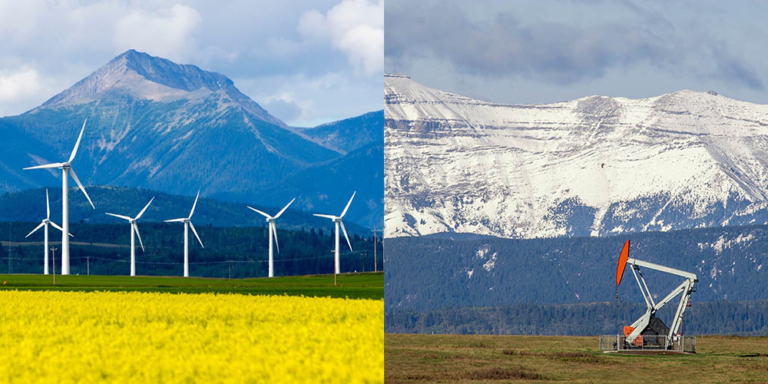Abandoned and unplugged oil and gas wells are a massive problem in Alberta. However, unless the Alberta government suddenly gets a spine, taxpayers will be left cleaning up the industry’s mess.
But if these wells aren’t cleaned, our environment and communities will suffer instead. Even wells that have stopped producing can be dangerous.
“An abandoned well can still be releasing emissions…in particular contaminating the groundwater, but also in the release of methane…So that’s significant. And we talk about climate change in particular because methane is a very potent greenhouse gas,” Vanessa Corkal, a policy analyst with the International Institute for Sustainable Development (IISD), told CTV News.
The thing is, there are laws in place meant to hold the industry accountable. For example, the polluter pays principle states that when a company makes a mess, they pay for the cleanup costs.
That’s how it should be, but these laws aren’t adequately enforced.
“It’s not that there isn’t regulation in place…One of the biggest issues is simply a lack of enforcement. It’s not enough to have a law and a regulation; you need to enforce that regulation,” continued Corkal.
Like a pair of broken handcuffs, existing laws have failed to keep the industry in check. Because of this, oil and gas companies have found ways around their legal obligations.
For instance, if a company that owns a well goes bankrupt, who pays for the well’s cleanup? The bankrupt company’s remaining assets should be used to pay for the cleanup.
However, who gets stuck with the bill if these assets aren’t enough to cover cleanup costs? One way or another, it’s taxpayers.
When wells are drilled on private property, companies must pay land rent to the landowner. But if a company cannot pay rent, the burden falls on taxpayers through the Surface Rights Board (SRB).
And the industry seems to have developed a habit of skirting its obligations. In 2019 the government picked up an $8 million tab for land rent left unpaid by oil and gas companies. And freedom of information requests shows taxpayers have paid nearly $30 million to cover the bill for delinquent companies’ payments to private landowners since 2010.
“The vast majority of operators [whose rents are being paid by taxpayers] are in bankruptcy proceedings, receivership or insolvent,” Mike Hartfield, spokesperson for the SRB, told The Narwhal.
If that wasn’t bad enough, Rural Municipalities of Alberta said in March that delinquent oil and gas companies owed municipalities $253 million in unpaid taxes, up from an estimated $173 million in early 2020.
If a company cannot pay its taxes because it goes bankrupt, for example, it can have a massive impact on communities.
At least 20 of the province’s counties rely on these tax payments for more than half of their tax revenue. For example, oil and gas tax payments made up 96% of Brazeau County’s tax revenue in 2018.
When oil and gas companies don’t pay their taxes, it can devastate small communities that rely on these tax payments to survive. Without them, communities must make tough decisions like cutting back on road maintenance or increasing property tax for residents.
We need to hold the industry accountable. Oil and gas companies should be cleaning up their mess, not us.
For this to happen, Canada’s energy regulators need to enforce the law and make the polluter-pay principle mean something more than a catchphrase. Otherwise, taxpayers will continue to be left paying the price.
With oil companies earning record profits, that is unacceptable.






